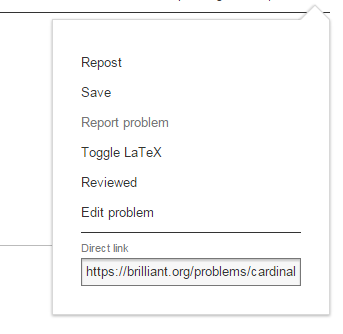Fibonacci
F n = x ! + y !
The above equation holds true for some positive integers n , x and y . Find the largest n < 1 0 0 satisfying this condition, and submit your answer as n + x + y .
Notations :
- F n denote the n th Fibonacci number , where F 0 = 0 , F 1 = 1 and F n = F n − 1 + F n − 2 for n = 2 , 3 , 4 , … .
Notation : ! denotes the factorial notation. For example, 8 ! = 1 × 2 × 3 × ⋯ × 8 .
The answer is 21.
This section requires Javascript.
You are seeing this because something didn't load right. We suggest you, (a) try
refreshing the page, (b) enabling javascript if it is disabled on your browser and,
finally, (c)
loading the
non-javascript version of this page
. We're sorry about the hassle.
2 solutions
Hi Mark, thanks for the mention of the paper. I liked it and will get a copy.
Actually, there's these that work
1
!
+
1
!
=
2
1
!
+
2
!
=
3
2
!
+
3
!
=
8
4
!
+
5
!
=
1
4
4
all of which are Fibonacci numbers. Probably the question should be reworded.
Yes, you are right and I am rewording the problem. Thanks!
Thanks. I've updated the problem statement.
In future, if you spot any errors with a problem, you can “report” it by selecting "report problem" in the “line line line” menu in the top right corner. This will notify the problem creator who can fix the issues.

Can you please post a solution sir?
This paper proves that in fact 1 2 is the largest possible value of n such that F n = x ! + y ! for positive integers x , y (and not just the largest in the range n < 9 9 ). We have F 1 2 = 1 4 4 = 5 ! + 4 ! , so the solution is 2 1 .